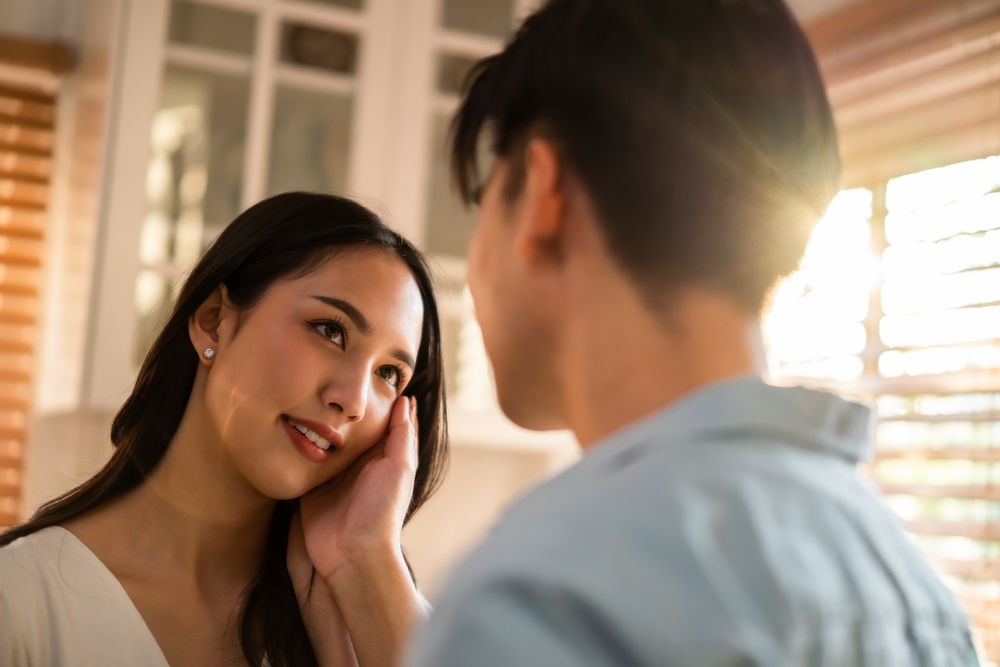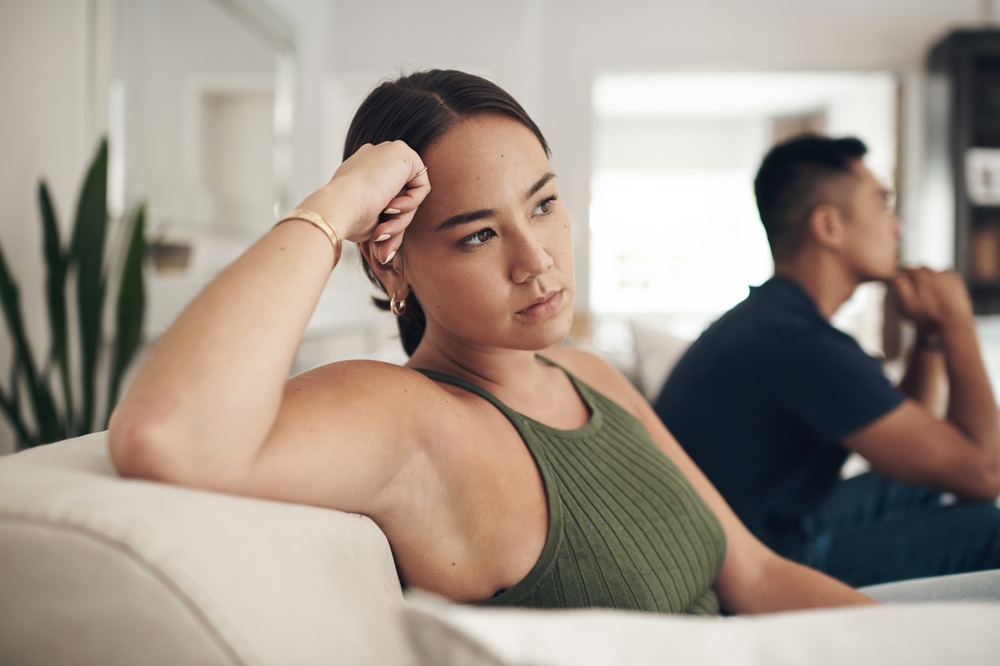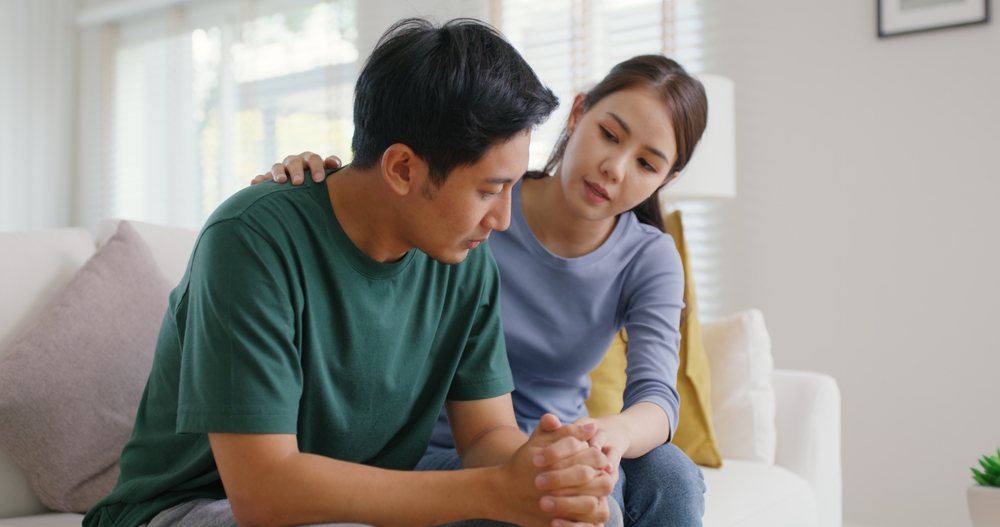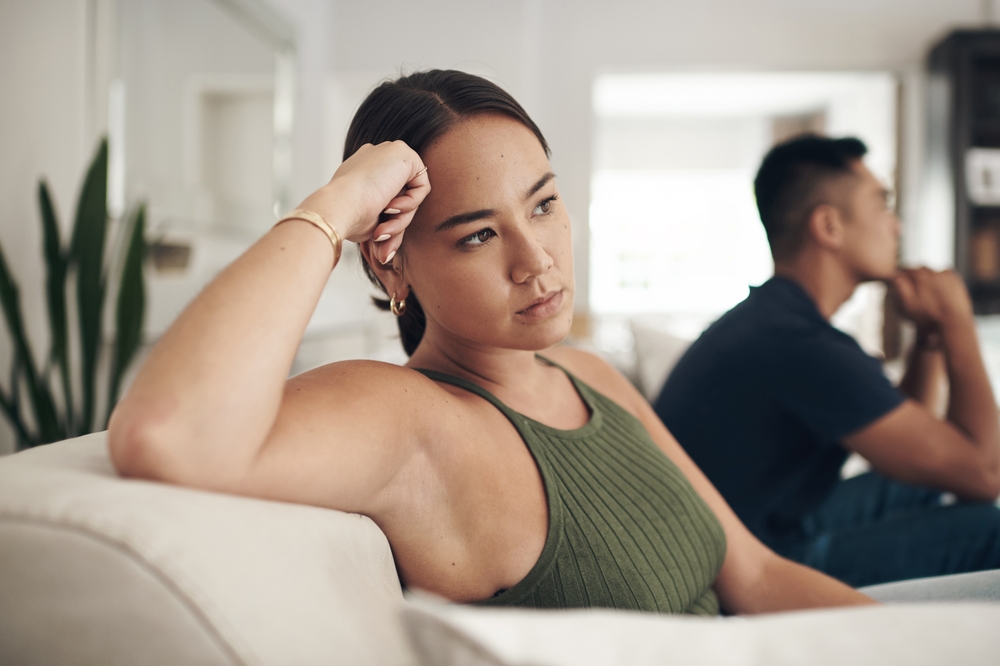As a psychologist, I’ve worked with hundreds of couples in distress. Most come in thinking their problems are unique or unsolvable. But beneath the surface, unhappy couples often have one thing in common. When I ask them four key questions, they say “no” to all of them. These answers don’t just reflect frustration or daily stress, they reveal a deeper emotional disconnect that erodes intimacy over time. The questions are simple, but they tap into the foundation of what makes a relationship safe and fulfilling.
Do You Feel Emotionally Safe With Your Partner?

Emotional safety means feeling accepted, supported, and free to be vulnerable. In healthy relationships, both partners feel they can express themselves without fear of ridicule, rejection, or punishment. As a psychologist, I’ve seen how emotional safety allows couples to handle conflict with compassion instead of fear. When a person says “no” to this question, it often means they are walking on eggshells or suppressing their feelings to avoid setting their partner off. Over time, this causes emotional distance, resentment, and loss of trust. On the other hand, when emotional safety is present, even tough conversations feel manageable.
Can You Be Yourself in the Relationship?

Authenticity is essential for real connection. People in strong relationships feel free to share their quirks, fears, opinions, and flaws without judgment. But when I ask couples if they can truly be themselves, many say “no.” They feel they must edit their personality, mask their emotions, or constantly manage their partner’s moods. As a psychologist, I know this emotional masking leads to exhaustion. Over time, pretending to be someone else kills intimacy. A good relationship allows both people to grow and express themselves fully. When you can be your whole self, love becomes a space for freedom, not performance.
Do You Believe Your Partner Respects You?

Respect isn’t just about saying polite words, it’s about how you show up for someone daily. People who feel respected are listened to, supported, and treated as equals. When someone says “no” to this question, it usually means their ideas are dismissed or their needs go unmet. As a psychologist, I hear stories of subtle disrespect all the time, like eye-rolling, interrupting, or one-sided decisions. These small actions build up. They teach one partner that their voice doesn’t matter. In contrast, couples who respect each other share power, honor each other’s time, and make space for disagreement without contempt.
Are You Still Growing Together?

Emotional growth is a key sign of long-term relationship health. As a psychologist, I often ask couples if they feel they’re evolving together or growing apart. Those who say “no” describe feeling stuck, bored, or emotionally alone. They talk about wanting more depth, more fun, or more vision. Growth can mean building dreams together, learning from conflict, or exploring new emotional terrain. When a relationship stops growing, disconnection sets in. The couples who thrive often have shared goals, celebrate each other’s wins, and make an effort to stay curious about who their partner is becoming.
What These “No” Answers Really Mean

These four questions work like an emotional X-ray. They reveal what’s missing in a relationship without needing a list of complaints. As a psychologist, I’ve learned that couples who say “no” to multiple questions are often deeply unhappy, even if they stay together. Their bond is likely built on habit, obligation, or fear, not emotional closeness. It’s not about whether they fight or not, it’s about whether they feel seen, heard, and safe. When these emotional needs go unmet, love begins to wither quietly.
Couples Who Say “Yes” Are Doing These Things Right

The couples who say “yes” to all four questions aren’t lucky, they’re intentional. They create a foundation of trust and openness. They support each other’s goals, listen without defensiveness, and talk through hard topics with care. As a psychologist, I’ve seen how small daily actions add up. Saying “I’m proud of you,” giving space after conflict, and checking in emotionally all help keep the relationship strong. These couples are not perfect, but they repair ruptures quickly and treat each other like teammates.
If You Said “No,” Here’s Where to Start

If you read those questions and said “no” to more than one, you are not alone. Many couples reach this point. As a psychologist, I always tell people not to panic. A “no” today doesn’t mean the relationship is doomed. But it is a signal that something needs attention. Begin with curiosity. Ask yourself what you truly need to feel emotionally safe or respected. Then share this with your partner calmly. Growth starts with honesty. If the conversations feel too difficult, therapy can offer a neutral space for both partners to explore what’s wrong and how to repair it.
Read More: 12 Must-Know Insights for Lasting Relationships
What a Psychologist Looks for in a Healthy Relationship

When I sit with a couple in my office, I’m not looking for perfection. I’m looking for patterns of care, mutual support, and emotional accountability. Do they apologize without defensiveness? Do they speak to each other with respect? Do they seem interested in growing, even when things are hard? These signs often mean the couple will make it. As a psychologist, I also notice what’s missing. Silence, tension, eye-rolling, and withdrawal often signal bigger problems. But even these can be worked through if both partners are willing to face the issues directly.
Why These Questions Help More Than Traditional Advice

Most relationship advice focuses on surface behavior. Communicate better. Make time for dates. Divide chores. While helpful, these tips don’t work if the emotional foundation is cracked. That’s why, as a psychologist, I return to these four core questions. They help people stop treating symptoms and start addressing the root issues. You cannot communicate well with someone if you don’t feel emotionally safe. You won’t enjoy a romantic weekend if you secretly feel disrespected. The deeper issues must be addressed first.
Psychologist Who Studies Love

As a psychologist, I believe love can heal and transform, but it requires truth. These four questions are not easy to ask or answer, but they are essential. They help you see clearly where your relationship stands. If you say “yes” to most of them, you are likely in a strong emotional partnership. If you say “no,” you now know where to begin. Love is not about staying the same, it’s about growing together in a way that brings out your best. These questions are not the end of the story, they’re just the beginning of a new and more honest chapter.
Read More: What She’s Really Thinking: 10 Unspoken Relationship Truths
Disclaimer: This article was created with AI assistance and edited by a human for accuracy and clarity.
Disclaimer: This information is not intended to be a substitute for professional medical advice, diagnosis or treatment and is for information only. Always seek the advice of your physician or another qualified health provider with any questions about your medical condition and/or current medication. Do not disregard professional medical advice or delay seeking advice or treatment because of something you have read here.

